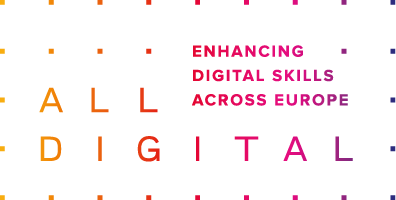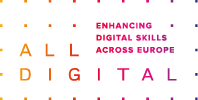
17 Dec Intergenerational helper
17 Dec, 2019
Duration: 10 days
Editions: November 2021, March 2022
Accommodation and boarding: not provided
Contact Person: Ildiko Farkas
Overview
The aim of the course is to develop confidence and make sure that the participants learn the best pedagogical aspects of teaching ICT competencies to the elderly. The focus is on young people under 30, who are motivated and willing to act as IT instructors for elderly people and start new training groups for the elderly.
Form of the training: group training.
Methods: ice breaker, workshop, role-play/situation game, individual presentation, presentation, open discussion, evaluation
Number of participants in the group: minimum 6 – maximum 10
Requirements:
- Education: Secondary/Collage/University
- Vocation (special knowledge): N/A
- Previously expected knowledge and experience: Familiar with computers
- Proficient in spoken and written English (independent user)
PROGRAMME
Curriculum modules:
1. Characteristics of an elderly person in connection, cooperation and learning
1.1. The best ways to connect with an elderly person – how to behave and interact with the elderly.
1.2. Physical and psychological perspectives.
1.3. Understanding the cultural differences between the generations and the countries and to meet the elderly in equality
2. Teaching methods for the elderly
2.1. Learn the best learning techniques, strategies and methods.
2.2. Help the elderly to use computers and other platforms.
2.3. Teaching ICT in a group – responsibilities and expectations, how to be a trainer.
2.4. Soft skills trainings: verbal and physical communication, presentation skills, stress and conflict management, problem solving, nonverbal communication.
2.5. Group behavior and dynamics.
3. Transmission methodology in teaching basic computer skills
3.1. Programs in general
3.2. Accessibility in general
3.3. The risk of the internet
3.4. Security using different platforms
Lesson Plan
Day 1: Direct contact with the elderly; discussion
Day 2: Psychological and psychical perspectives
Day 3: Generational differences and similarities; connecting with the elderly
Day 4: Learning techniques, Teaching techniques
Day 5: Help elderly to use computers and other platforms, Manage teaching ICT in a group
Day 6: Verbal and physical communication training, Presentation skills,
Day 7: Stress and conflict management, Supervision, Time management
Day 8: Computers and other IT platforms, Behavior on the internet & safety pack
Day 9: Work with elderly
Day 10: What will you do when you get home, Evaluation
Learning outcomes
Knowledge and theory:
1. Knowledge of characteristics of the elderly in connection, cooperation and learning: the best ways to connect with an elderly person – how to behave and interact with the elderly, motivation, encouragement, empathy).
2. Understanding physical and psychological perspectives of the elderly, the cultural differences and similarities between the generations and the countries and to meet the elderly in equality.
3. Recognizing the elderly people’s day-by-day problems, the aging process, the physical limitations
4. Knowledge of learning and teaching methods for the elderly
5. Understanding trainer and trainee relation – teaching vs. learning and emotional part of the learning
6. Gathering methods for managing teaching ICT in a group – responsibilities and expectations, how to be a trainer.
7. Soft skills of trainings: verbal and physical communication, presentation skills, stress and conflict management, problem solving, body language.
8. Group behavior and dynamics.
9. Transmission methodology in teaching basic computer skills.
10. Effective usage of accessibility features in software.
Skills/abilities:
1. Ability to be age responsible.
2. Ability to relate to specific situations and participants.
3. Commitment to the subject and the training event.
4. Ability to encourage participants.
5. Ability to manage groups and individuals too.
6. Ability to understand the differences between the generations.
7. Using methods in case of teaching the elderly for using internet and modern devices effectively in everyday life.
Attitudes and behavioral features:
1. A positive mental attitude – positive thinking.
2. Enjoy being around people and teach the elderly something new.
3. Exemplary communication skills – able to listen and understand others.
4. Proactive and not reactive attitude (situational awareness) – helps to deal with problems, issues.
5. Able to build up the trust between the participants.
6. Other skills: patience, flexibility, good organisational and time management.
Responsibility and autonomy:
1. Organizing trainings.
2. Adapts the training programme to trainees needs.
3. Prepares and designs training manuals and materials.
4. Train elderly people on ICT competencies and usage of modern technologies.





